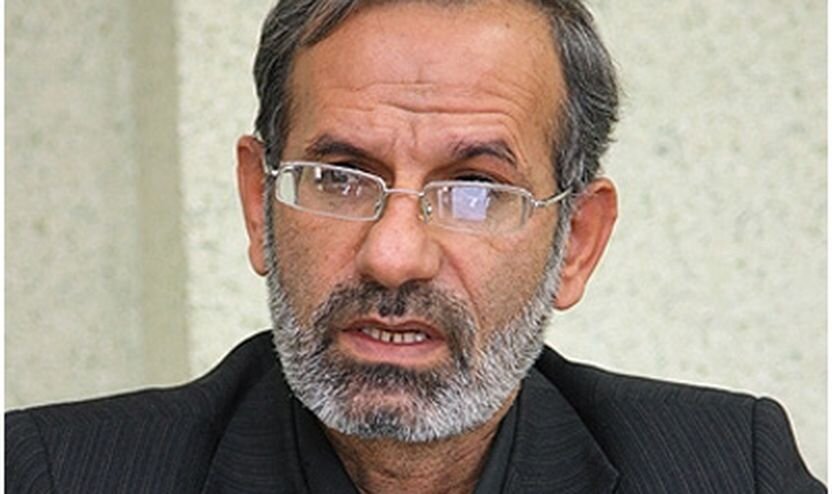TEHRAN - A senior expert on regional issues has said that the "Baghdad Regional Summit" could be the basis for serious negotiations between the countries of the region for the next rounds and eventually lead to signing of agreements between the countries in the region.
In an interview with IRNA on Saturday, Sadullah Zarei went on to say, "Perhaps the Baghdad Regional Summit is unique in its kind in the last eight years because it was attended by representatives from European, African, Asian, and Arab and non-Arab countries."
As the expert says, representatives from Egypt, Jordan, France, the United States, Iran, Saudi Arabia, and Turkey attended the meeting, some at the level of heads of state or foreign ministers or ambassadors.
He pointed out that the meeting at this level required the technical committee to consult between the countries beforehand and to reach an agreement on the agenda and the issues under discussion and approve the general points.
“It does not seem that a common issue can bring the participating countries to a point to make a decision” "These preparations have not been made and in fact what has happened is the presence of countries that pursue different issues in this regard. For example, the role of Egypt and Jordan in this region is a weak role, but Turkey, Iran, and Saudi Arabia have a prominent role in this area. France has a weak role in the region, but the Americans have a more prominent role,” he stated.
The senior expert on Iraq highlighted that since the Baghdad Regional Summit did not commence with a clear agenda and previous consultations had not taken place, it would just lead to issuing a statement in the end.
“Expectations from this summit seem to be much higher than what is on the real agenda of the summit. At the same time, we hope that this meeting, even if it leads to just a statement and no agreement is reached, can be the basis of a series of talks on resolving regional issues, and the Baghdad summit can achieve clear goals in the second, third and fourth rounds,” he commented.
Regarding the possibility of a meeting between the Iranian and Saudi delegations in Baghdad, Zarei underscored, "There have been three meetings between Iranian and Saudi officials in Baghdad hosted by Iraqi Prime Minister Mustafa al-Kadhimi, so the meeting between the two sides is not a new event. I must remind that Iran and Saudi Arabia are not the only ones participating in this summit, and it is unlikely that anything special happens between Tehran and Riyadh during the Baghdad summit.”
He went on to say that the water shortage crisis and the crisis in Yemen and Lebanon are among the important agendas of the Baghdad Summit.
The countries participating in the conference do not have the same opinion on the issues raised as the agenda of this summit, he said, adding as for Yemen, the position of the Saudis and Iran will definitely be different, and Turkey will take the position not in support, not in opposition, and the Jordanians will take a position similar to Saudi Arabia.
So, Zarei said, it does not seem that a common issue can bring the participating countries to a point to make a decision.
"I think we are just witnessing consultation and dialogue between the countries participating in the Baghdad summit, and it is more of a joint conference than an intergovernmental summit aimed at reaching an agreement," Zarei said.
At the same time, he said, the summit can be the basis for serious negotiations for the next rounds and finally reaching an agreement.
But what will happen in Baghdad at the moment is not an agreement between the participating states, because the positions of these states are very different at the moment, he remarked.
Commenting on the Iraqi public's view of the summit, Zarei said, "Iraqi political groups mostly say that while the country is experiencing all kinds of security, political, cultural and economic problems, holding the summit at this level is much higher than the current state of affairs in Iraq. They see the summit as a personal move by al-Kadhimi to improve his position in the October 10th elections.”
Regarding the possibility of reviving relations between Tehran and Riyadh with the new administration in Iran, he said, "I believe that the relations between Iran and Saudi Arabia will be restored in the new administration of Iran, but not as quickly as we expect. In my opinion, in the next two years, the two countries will move towards the reopening of embassies and relations will be normalized, but naturally, this will not be easy and will require negotiations and mediation.”
The one-day regional summit on Iraq ended on Saturday, but many observers who attended the summit expressed hope that the participating countries would abide by their commitments and remarks on resolving disputes and promoting economic development and deny foreign interference in Iraq's internal affairs.


No comments:
Post a Comment